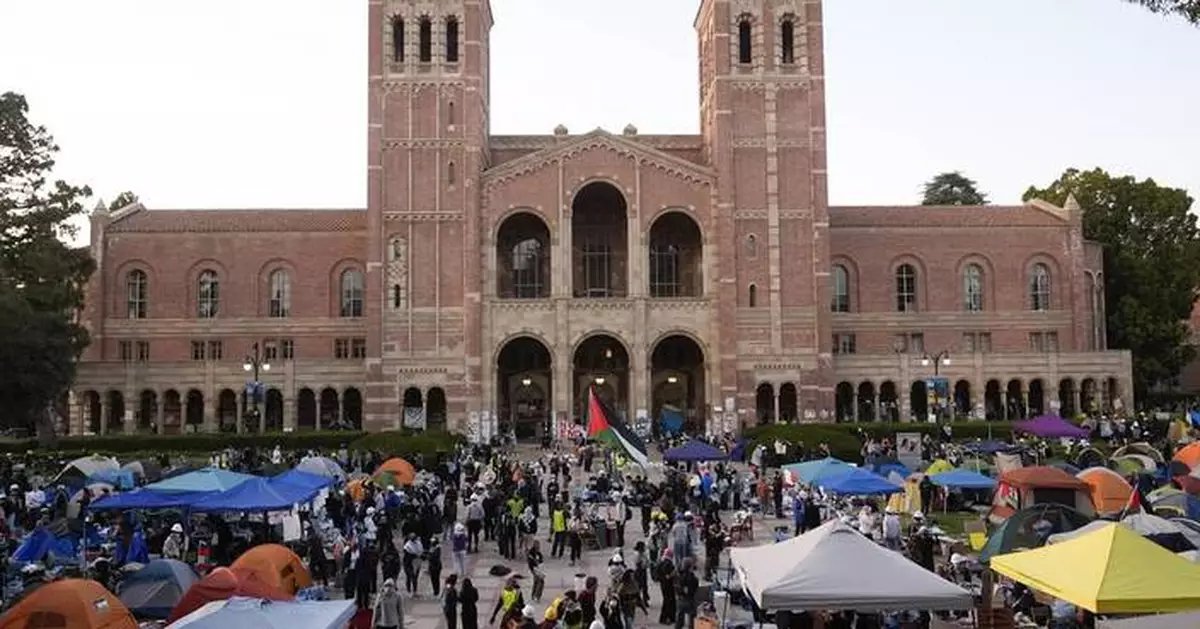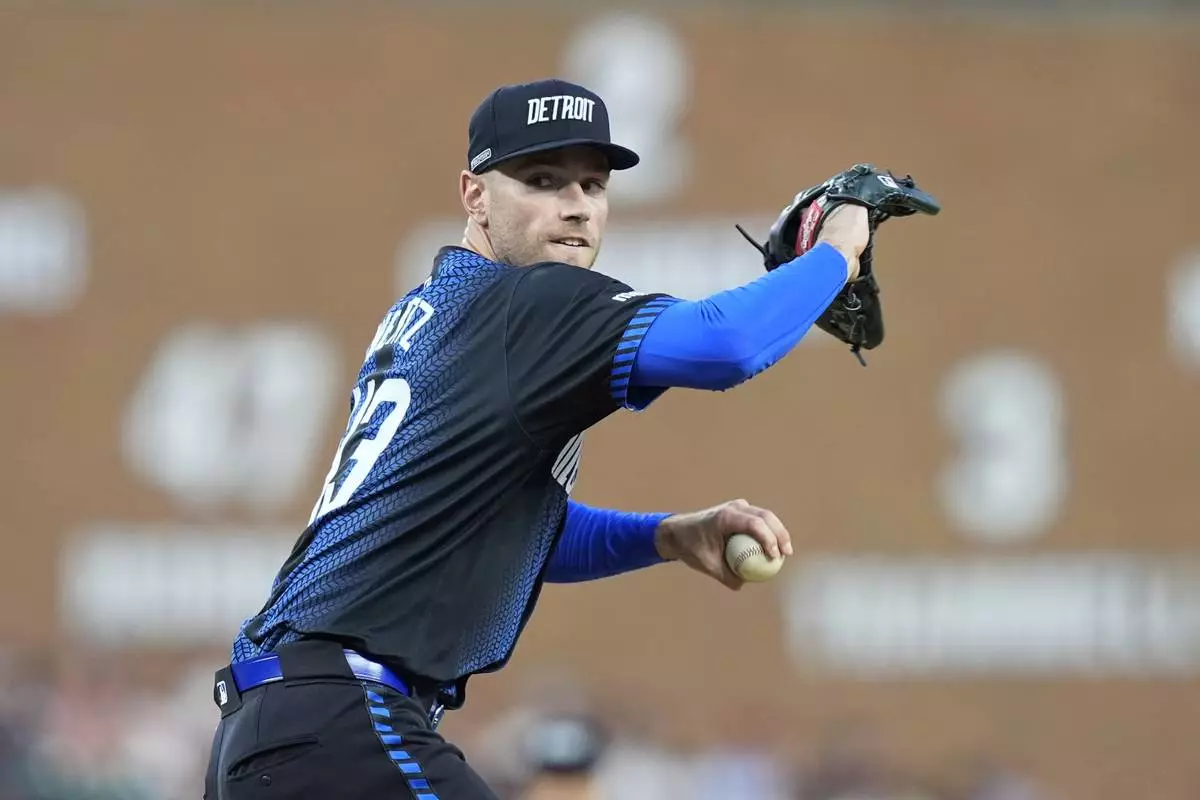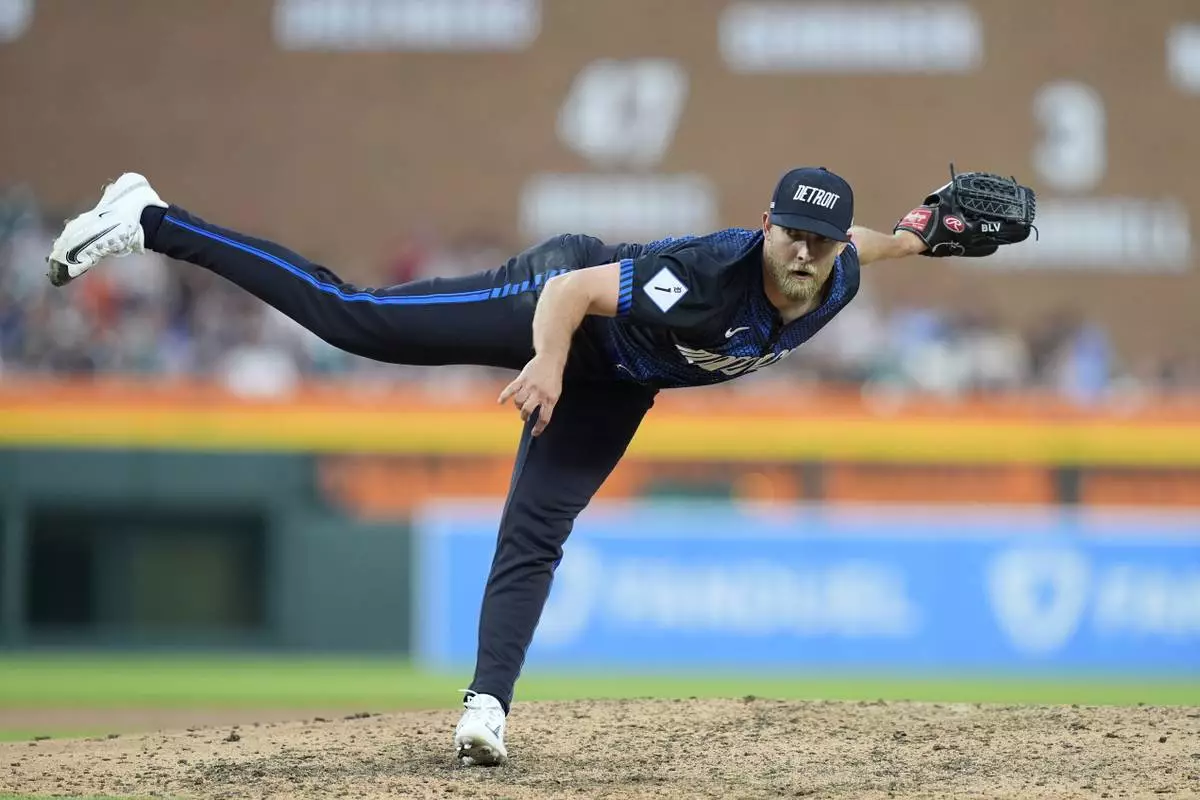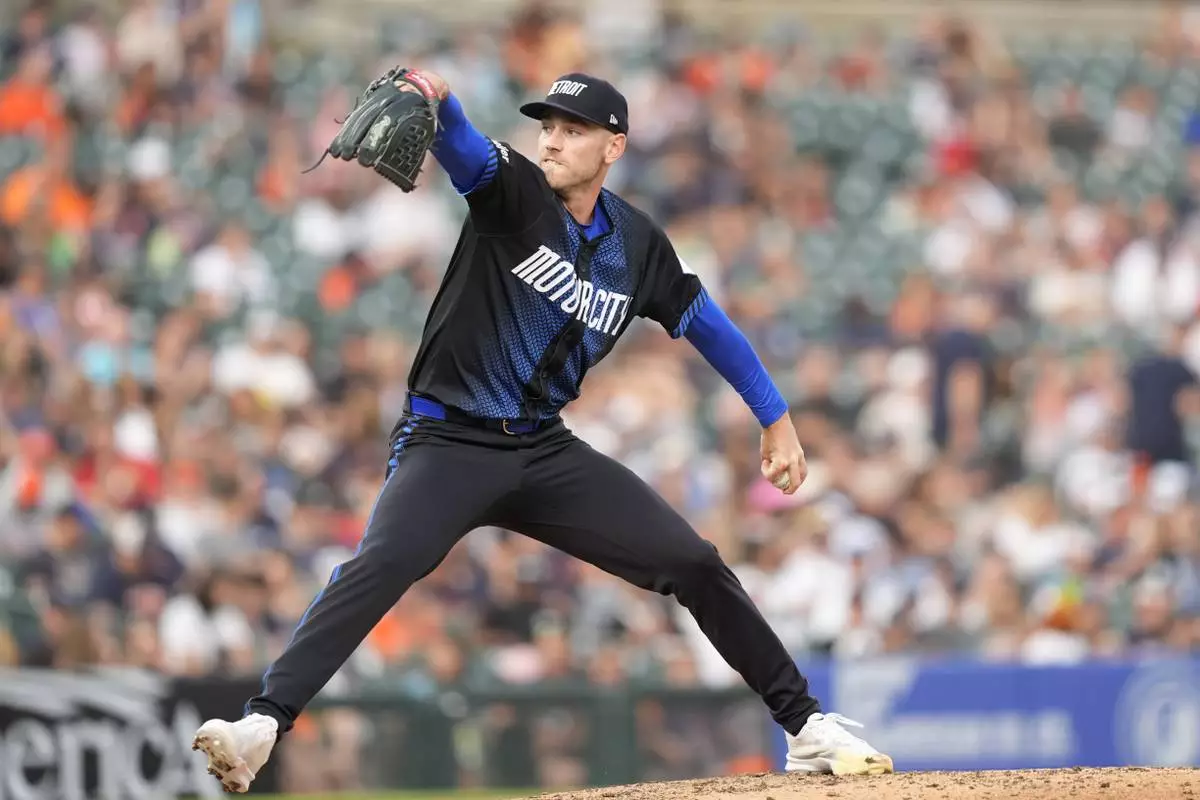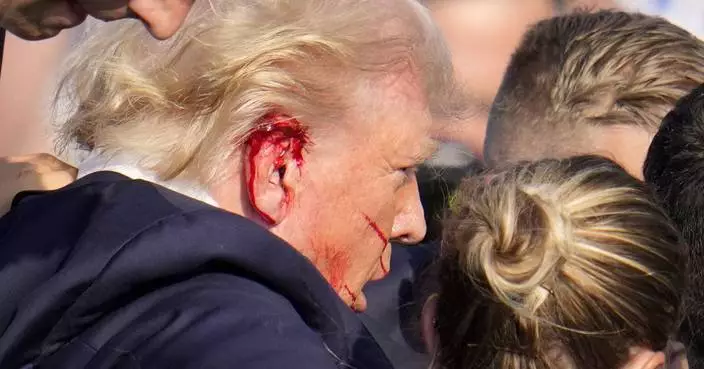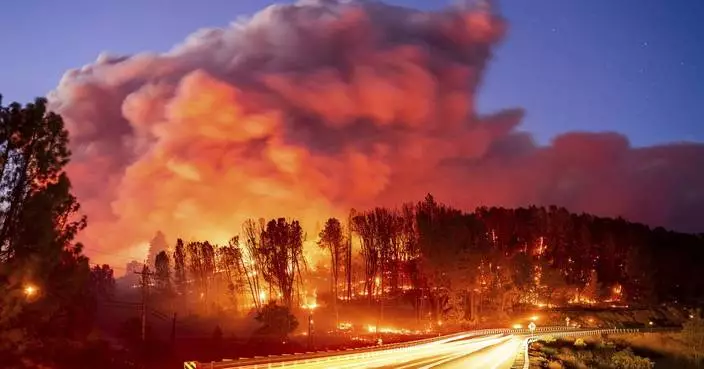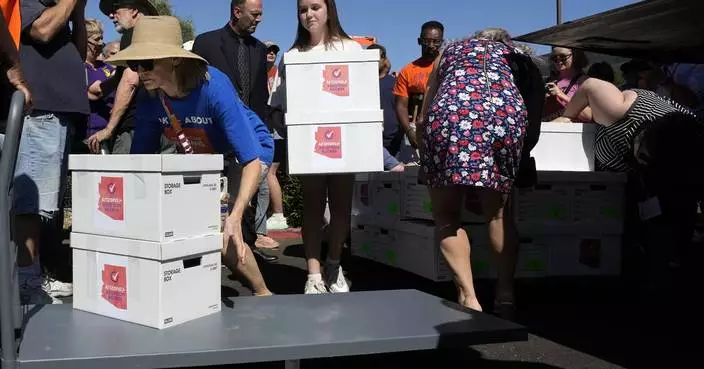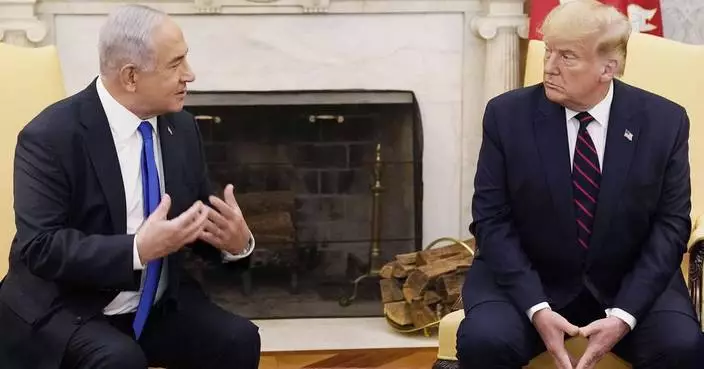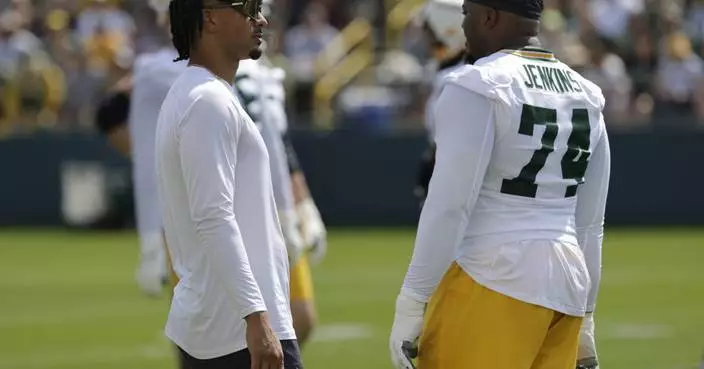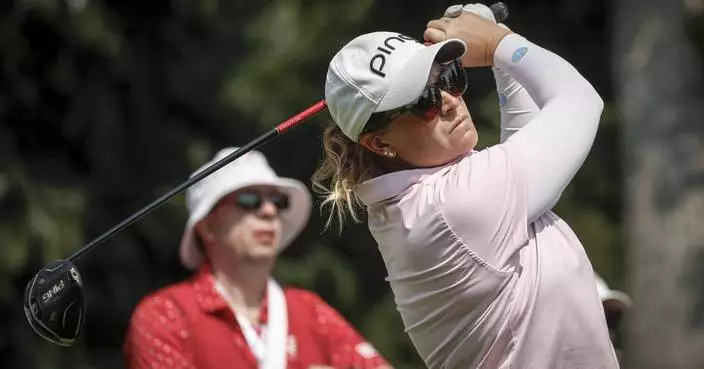WASHINGTON (AP) — The presidents of Northwestern and Rutgers universities defended their decisions to end pro-Palestinian encampments through negotiations rather than police force, telling a House committee on Thursday that they defused the danger without ceding ground to protesters.
“We had to get the encampment down,” Northwestern's Michael Schill said. “The police solution was not going to be available to us to keep people safe, and also may not be the wisest solution as we’ve seen at other campuses across the country.”
Schill and Jonathan Holloway of Rutgers were called before the House Education and the Workforce Committee as part of a series of hearings examining how colleges have responded to allegations of antisemitism.
Also testifying was Gene Block, chancellor of the University of California, Los Angeles, which has come under scrutiny for a delayed police response to violence between pro-Palestinian protesters and counterprotesters.
The committee’s inquiry expanded to large, public universities, UCLA and Rutgers, after earlier hearings largely focused on private, Ivy League colleges. Meantime, at Harvard's commencement Thursday, hundreds of students in graduation robes chanted “Free, Free Palestine” as they walked out of the ceremony. The school had announced on Wednesday that 13 students who participated in a protest encampment would not be able to receive diplomas alongside their classmates.
On Capitol Hill, committee Republicans accused the university leaders at the hearing of tolerating antisemitism, with particular scorn for Northwestern and Rutgers, where schools struck deals to end or limit protests.
Neither Northwestern nor Rutgers agreed to sever business ties with Israel — one of the protesters' chief demands. Rutgers agreed to discuss the topic; Northwestern revived a committee on “investment responsibility.”
Other terms focused on expanding institutional support for Muslim and Arab students and scholars on campus, and Rutgers promised not to retaliate against those who participated in protests.
“Each of you should be ashamed of your decisions that allowed antisemitic encampments to endanger Jewish students,” said Republican Rep. Virginia Foxx of North Carolina, the committee chair. "Mr. Schill and Dr. Holloway, you should be doubly ashamed for capitulating to the antisemitic rule breakers.”
The presidents considered police action but said it was not necessary.
“We made a choice — that choice was to engage our students through dialogue as a first option instead of police action,” Holloway said. “We had seen what transpired at other universities and sought a different way.”
Schill said students were willing to negotiate and reach a compromise that did not include divestment, their main demand. He said agreeing to a space for Muslim students where they could eat and pray, like other faith communities had on campus, was something he supported.
“We had students who were willing to negotiate and gave up their demands,” Schill said. “We said no, nothing that singles out Israel. Let’s think about what will make the university stronger."
Protesters hailed the agreements as victories. But on Capitol Hill, the presidents said they did not lose any ground.
“I would never recommend to the Board of Trustees divestment of anything or any academic boycott of Israel,” Schill said.
Even so, Foxx countered that Schill “created the perception” he would support divestment, “which encouraged other universities to cave on this.”
Each president denounced the rise of antisemitism amid the Israel-Hamas war. Schill and Block, who are Jewish, expressed their own disgust at some of the rhetoric and imagery used by protesters.
Block said public universities are in an especially tough bind as they work to shield students from discrimination while also upholding free speech. Unlike private universities, public universities are bound by the First Amendment. Even hateful speech must be protected, Block said, but UCLA draws the line when it crosses into threats and harassment.
He expressed remorse over the handling of a UCLA encampment that was attacked in early May. Counterprotesters threw traffic cones and released pepper spray in fighting that went on for hours before police stepped in, drawing criticism from Muslim students and political leaders.
“Tragically, it took several hours for law enforcement to quell the violence,” Block said “With the benefit of hindsight, we should have been prepared to immediately remove the encampment if and when the safety of our community was put at risk.”
On Wednesday, the police chief at UCLA was reassigned “pending an examination of our security processes,” according to a statement from the school.
A new pro-Palestinian encampment appeared on the UCLA campus as Block testified. “Our safety personnel are on-site and actively monitoring the situation,” Mary Osako, vice chancellor for UCLA Strategic Communications, said in a statement.
The encampment was abandoned when law enforcement arrived midday and declared it an unlawful assembly. Lines of officers pushed back a crowd of supporters that had gathered outside the encampment, but there were no clashes like those that occurred when a large camp was cleared three weeks earlier. A small group of demonstrators later staged a sit-in inside a nearby building before officers cleared them out.
As in previous hearings, Republicans pressed the leaders on discipline. They asked how many students had been expelled and how many faculty had been fired over antisemitic incidents since Oct. 7, when Hamas attacked Israel.
None of the presidents said students had been expelled, though they said there are dozens of ongoing investigations. Four students were suspended at Rutgers, Holloway said.
Schill said the numbers aren't a reflection of inaction.
“The fact that we didn’t have not yet suspended or expelled students does not mean that students have not received discipline,” he said. “There’s a wide range of discipline, and discipline has been meted out to many of those students.”
Tensions over the Israel-Hamas war have been high on campuses since the fall and spiked in recent weeks with a wave of pro-Palestinian tent encampments that led to over 3,000 arrests nationwide.
After the first congressional hearings in December, an outcry of criticism from donors, students and politicians led to the resignations of the presidents of Harvard and the University of Pennsylvania, who gave cautious, halting answers to questions about whether calls for the genocide of Jews would violate their schools’ conduct policies.
In April, the committee turned its attention to Columbia President Minouche Shafik, who took a more conciliatory approach to Republican-led questioning. Shafik’s concessions around faculty academic freedom upset students and professors at Columbia. Her testimony, and subsequent decision to call in police, escalated protests on campus that inspired students at other colleges to launch similar demonstrations.
Originally, the presidents of Yale University and the University of Michigan were called to testify on Thursday. But the committee shifted its attention to Northwestern and Rutgers after those colleges struck deals with pro-Palestinian protesters to limit or disband encampments.
Associated Press writers Christopher Weber and John Antczak in Los Angeles contributed to this report. AP photographers Damian Dovarganes and Ryan Sun also contributed.
The Associated Press’ education coverage receives financial support from multiple private foundations. AP is solely responsible for all content. Find AP’s standards for working with philanthropies, a list of supporters and funded coverage areas at AP.org.
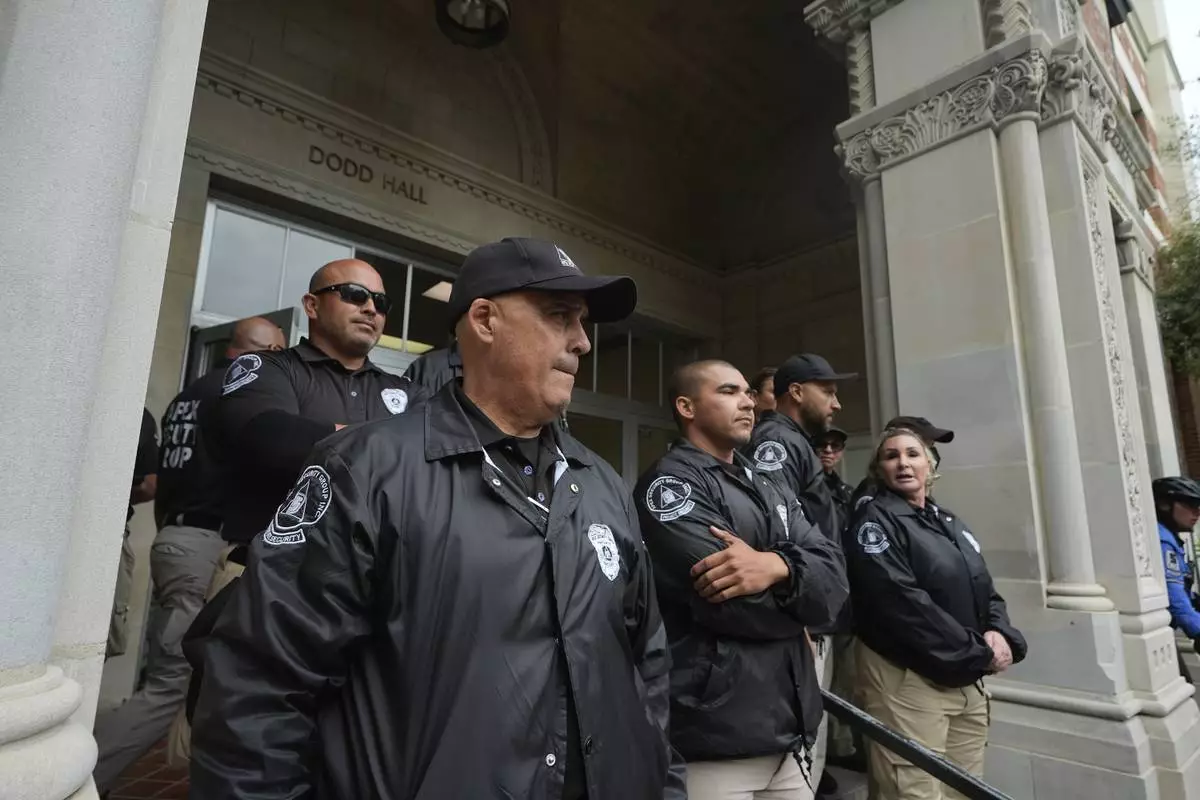
University security officers block pro-Palestinian demonstrators from Dodd Hall on the campus of UCLA in Los Angeles, Thursday, May 23, 2024. (AP Photo/Damian Dovarganes)
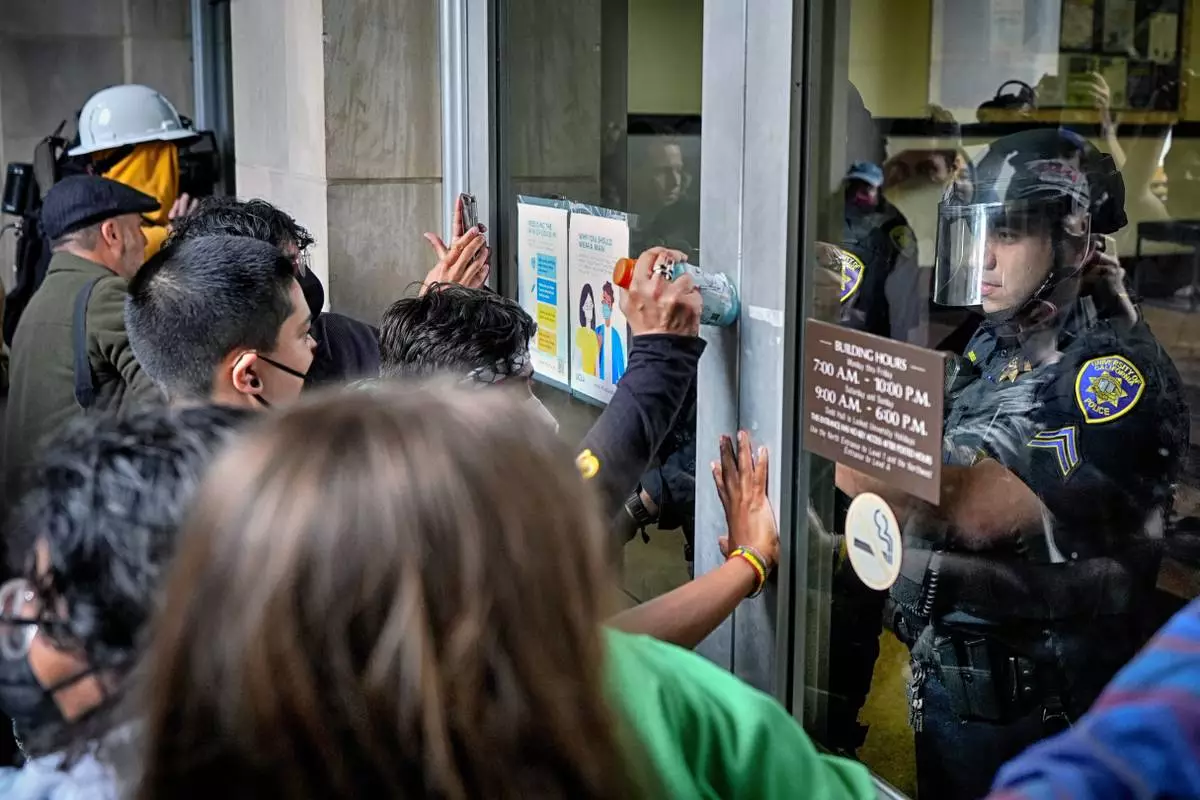
A University police officer blocks a doorway from pro-Palestinian demonstrators entering at Dodd Hall on the UCLA campus on Thursday, May 23, 2024, in Los Angeles. (AP Photo/Ryan Sun)
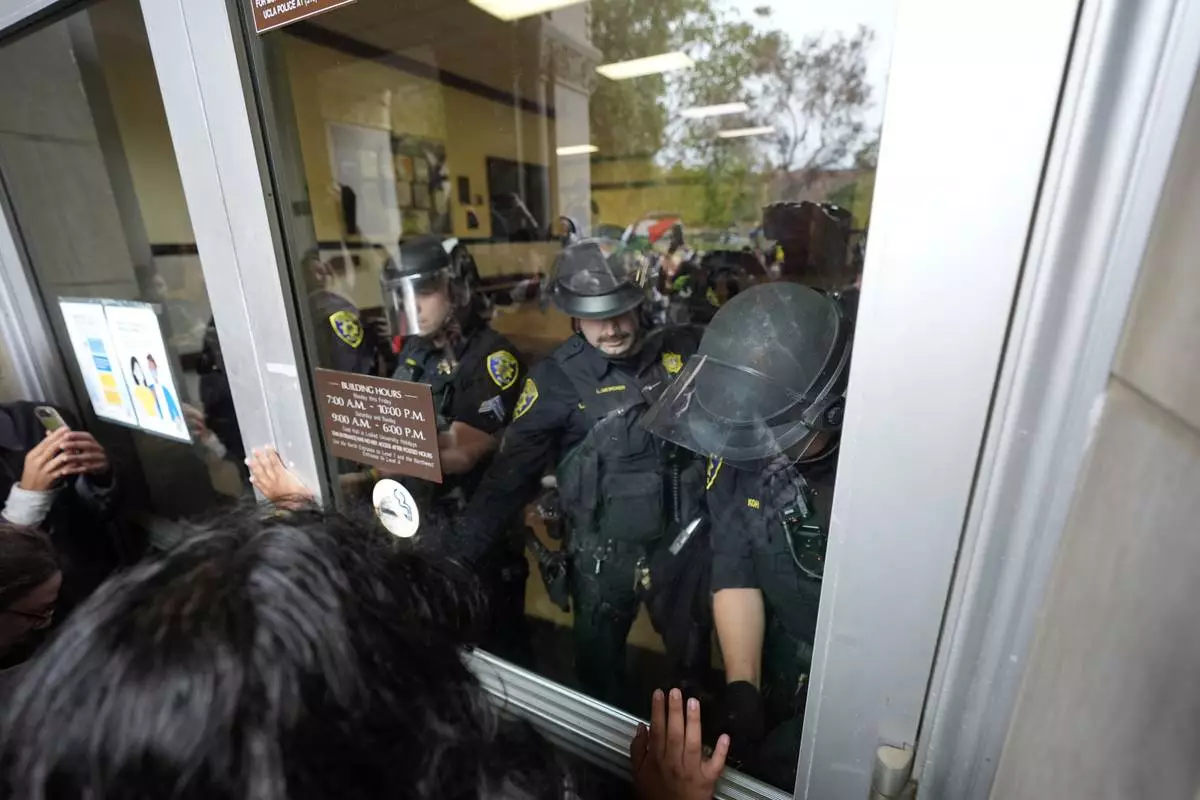
Police block a doorway to pro-Palestinian demonstrators at Dodd Hall on the UCLA campus on Thursday, May 23, 2024, in Los Angeles. (AP Photo/Ryan Sun)
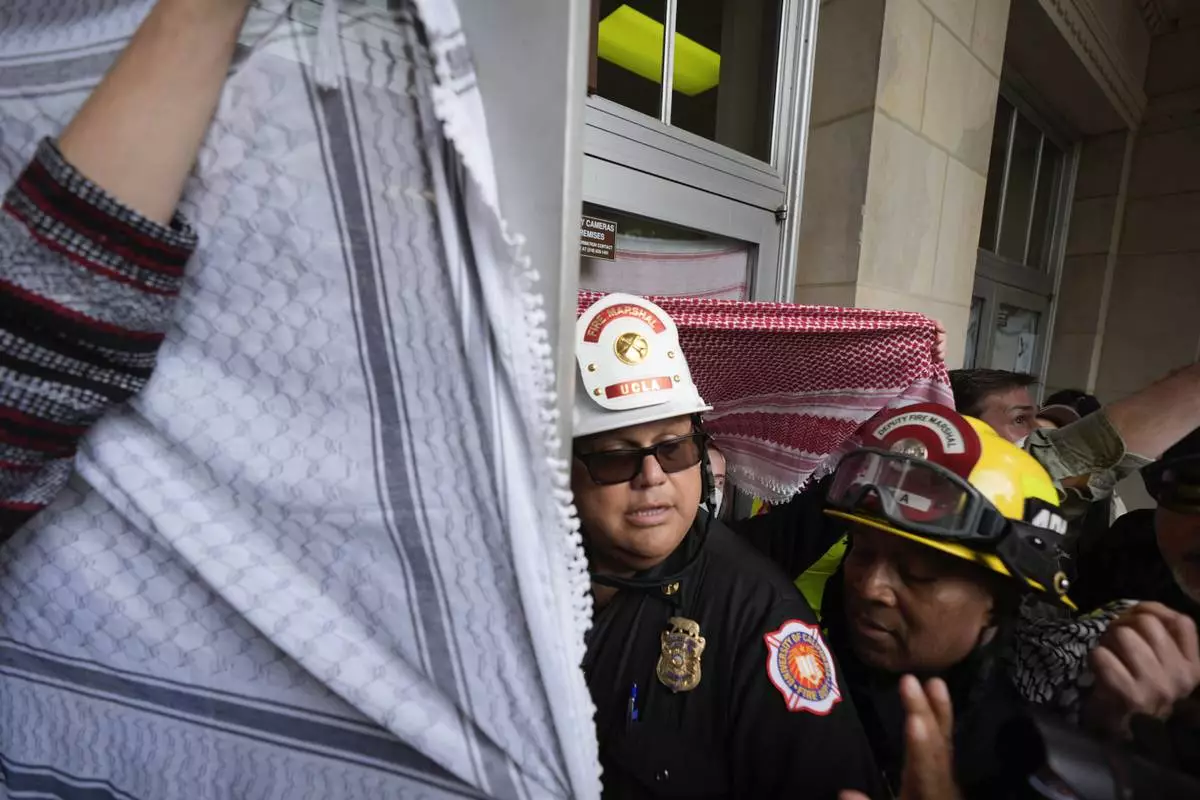
The Fire Marshal pushes his way through Pro-Palestinian demonstrators at Dodd Hall on the UCLA campus on Thursday, May 23, 2024, in Los Angeles. (AP Photo/Ryan Sun)
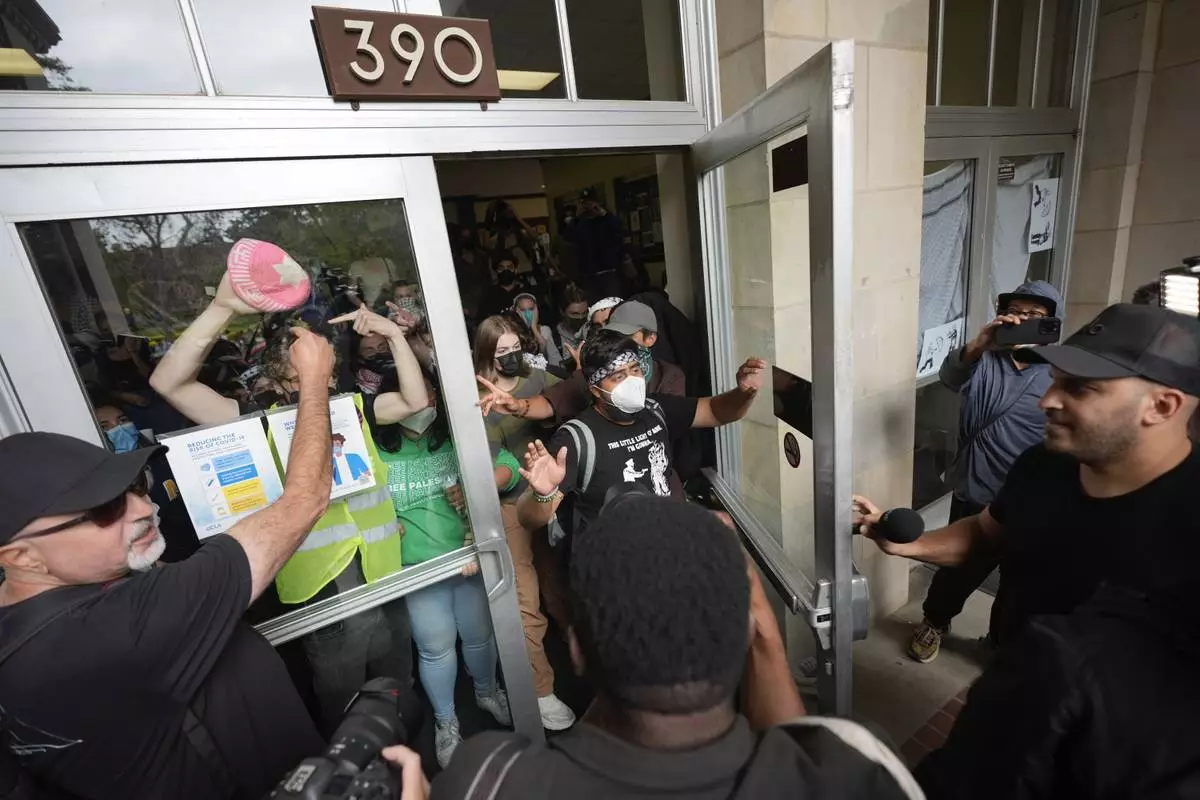
Pro-Palestinian demonstrators disperse from Dodd Hall as requested by the police on the UCLA campus on Thursday, May 23, 2024, in Los Angeles. (AP Photo/Ryan Sun)
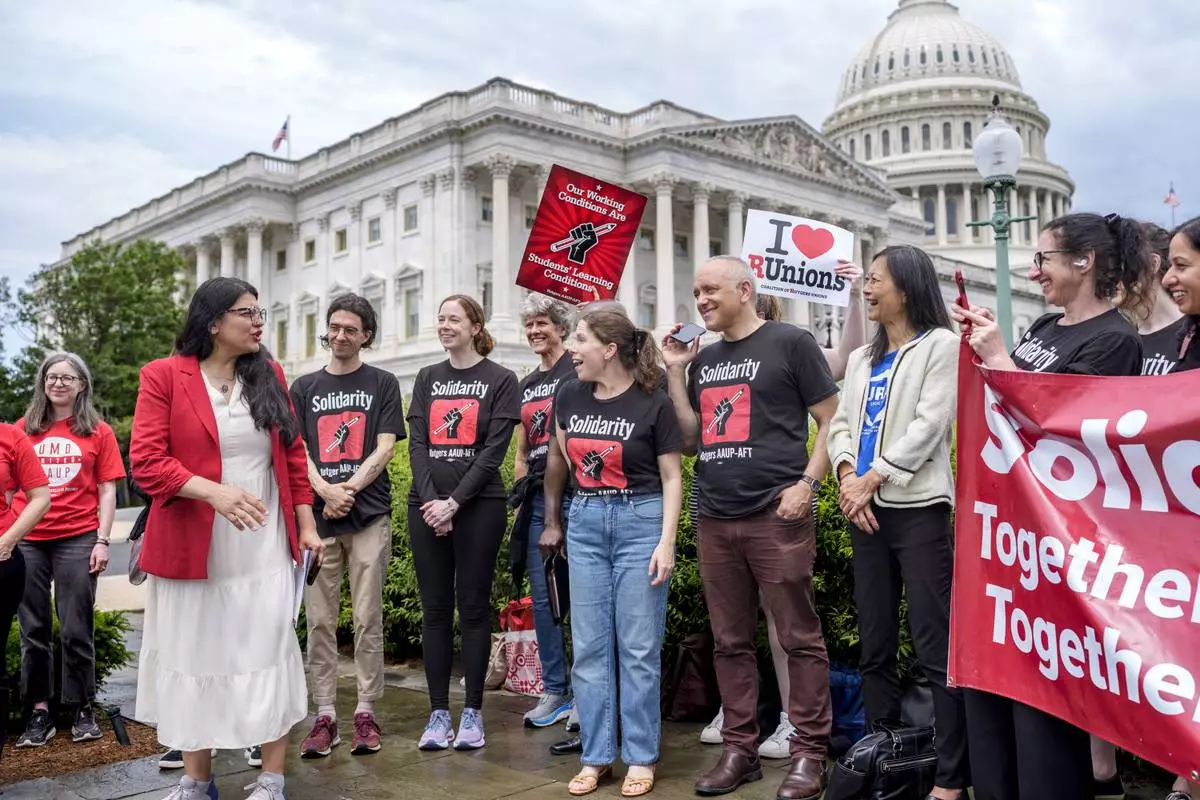
Rep. Rashida Tlaib, D-Mich., and union activists discuss free speech on college campuses, at the Capitol in Washington, Thursday, May 23, 2024. (AP Photo/J. Scott Applewhite)
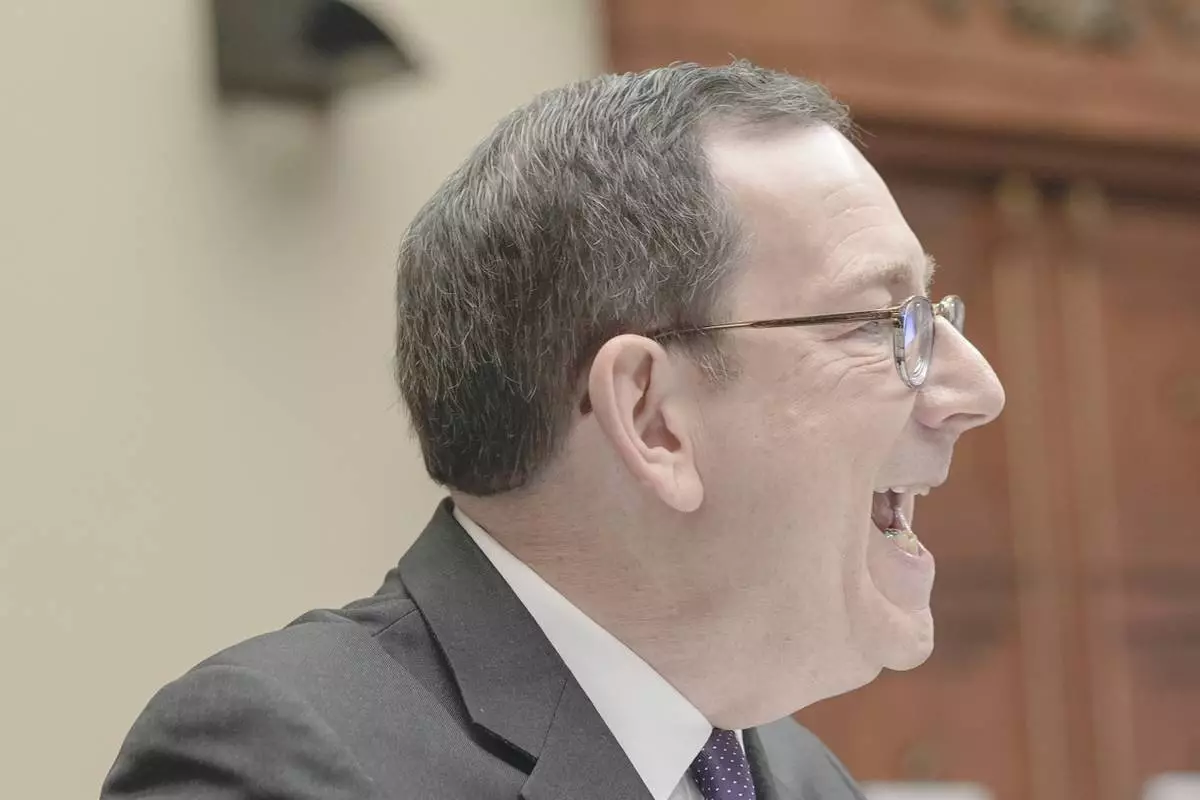
Northwestern University President Michael Schill testifies during a hearing of the House Committee on Education and the Workforce regarding pro-Palestinian protests on college campuses on Capitol Hill, Thursday, May 23, 2024, in Washington. (AP Photo/Mariam Zuhaib)
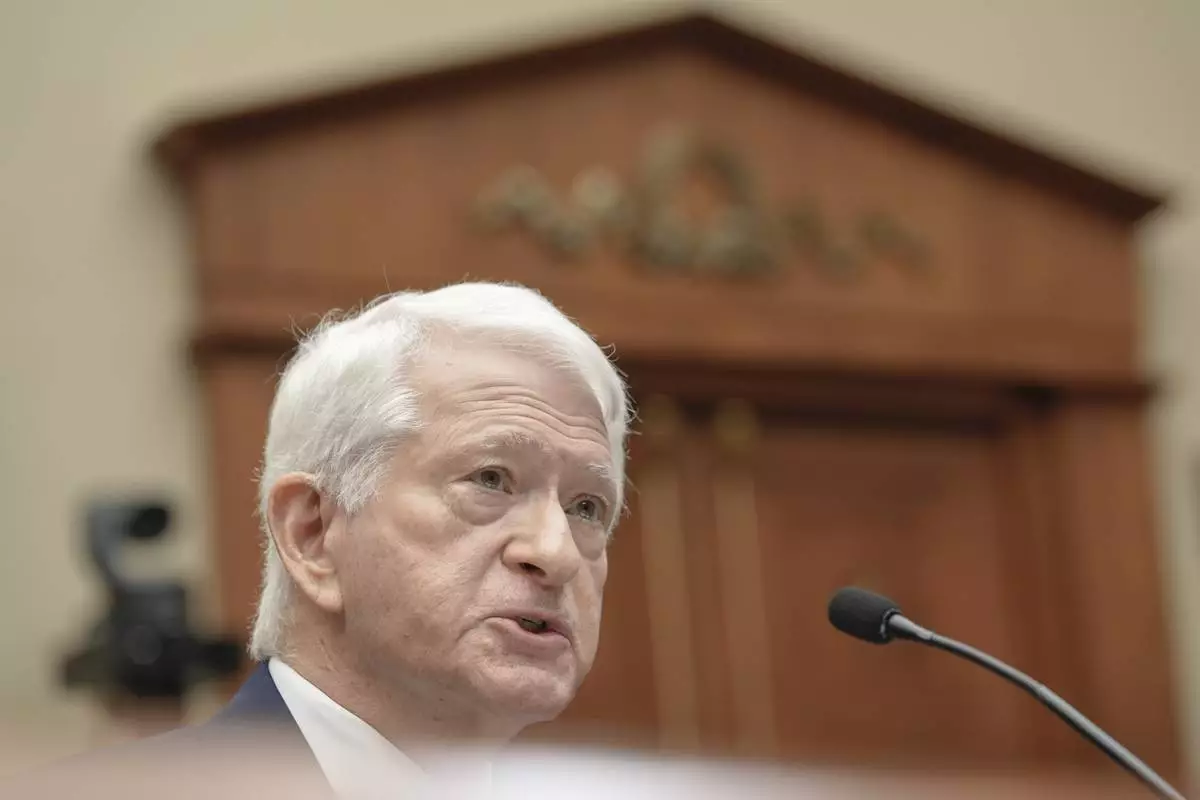
UCLA Chancellor Gene Block testifies during a hearing of the House Committee on Education and the Workforce regarding pro-Palestinian protests on college campuses on Capitol Hill, Thursday, May 23, 2024, in Washington. (AP Photo/Mariam Zuhaib)
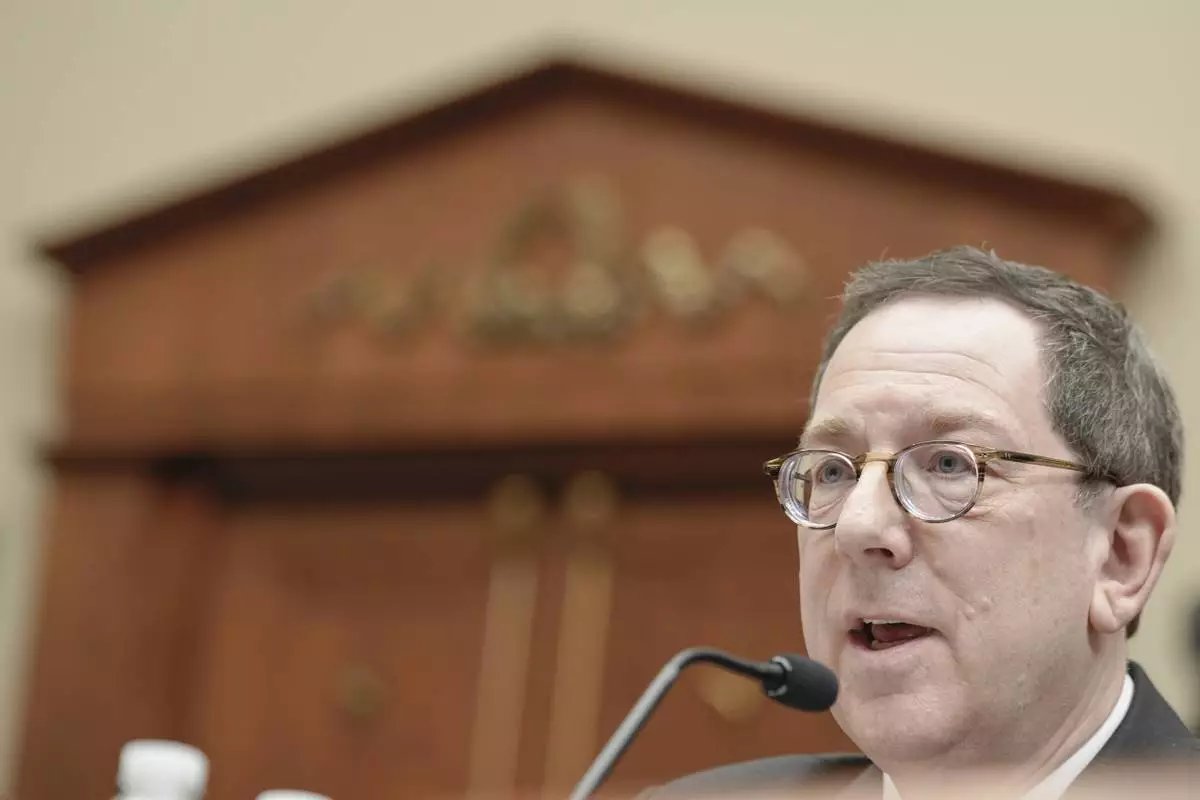
Northwestern University President Michael Schill testifies during a hearing of the House Committee on Education and the Workforce regarding pro-Palestinian protests on college campuses on Capitol Hill, Thursday, May 23, 2024, in Washington. (AP Photo/Mariam Zuhaib)
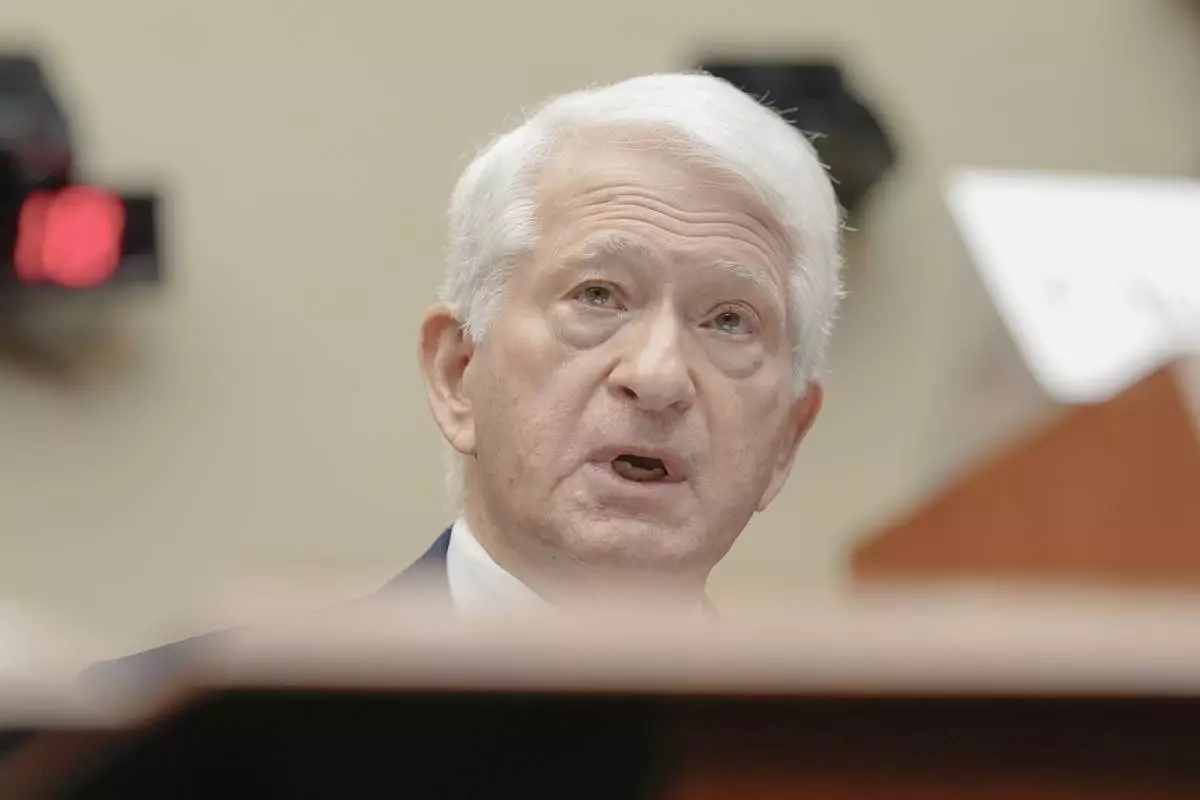
UCLA Chancellor Gene Block testifies during a hearing of the House Committee on Education and the Workforce regarding pro-Palestinian protests on college campuses on Capitol Hill, Thursday, May 23, 2024, in Washington. (AP Photo/Mariam Zuhaib)
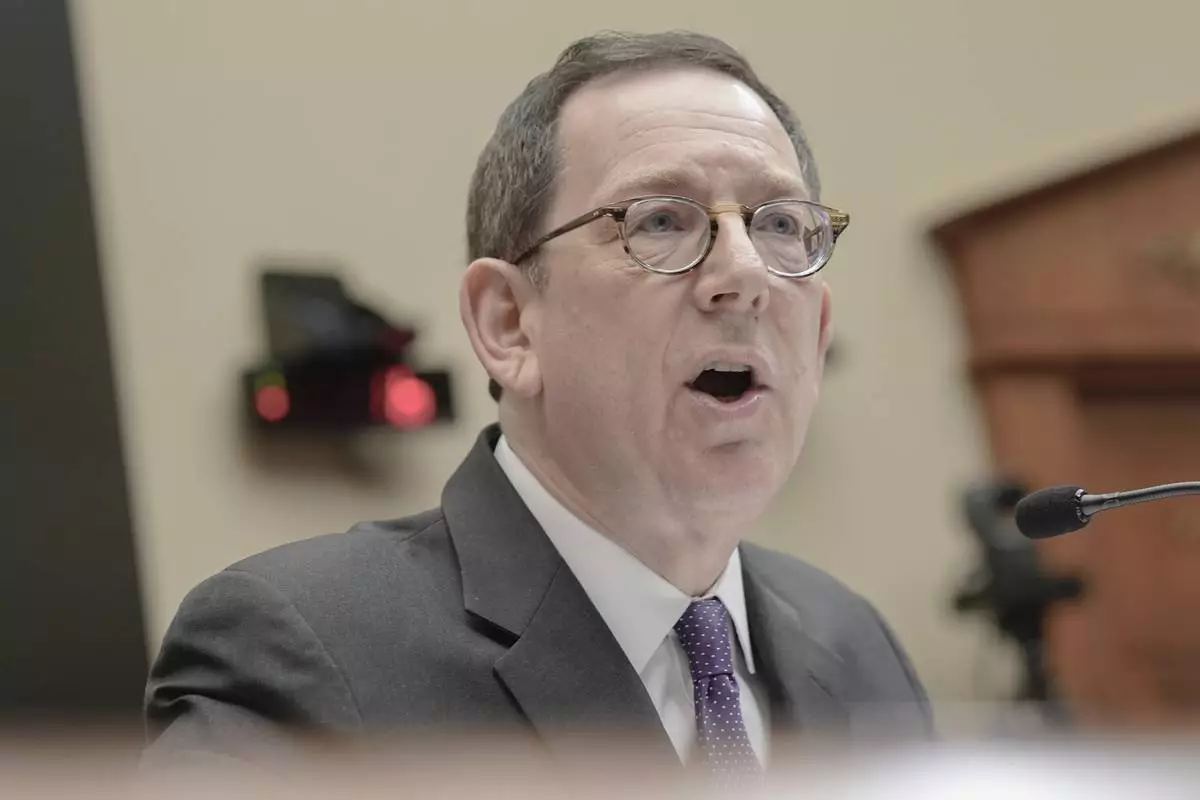
Northwestern University President Michael Schill testifies during a hearing of the House Committee on Education and the Workforce regarding pro-Palestinian protests on college campuses on Capitol Hill, Thursday, May 23, 2024, in Washington. (AP Photo/Mariam Zuhaib)
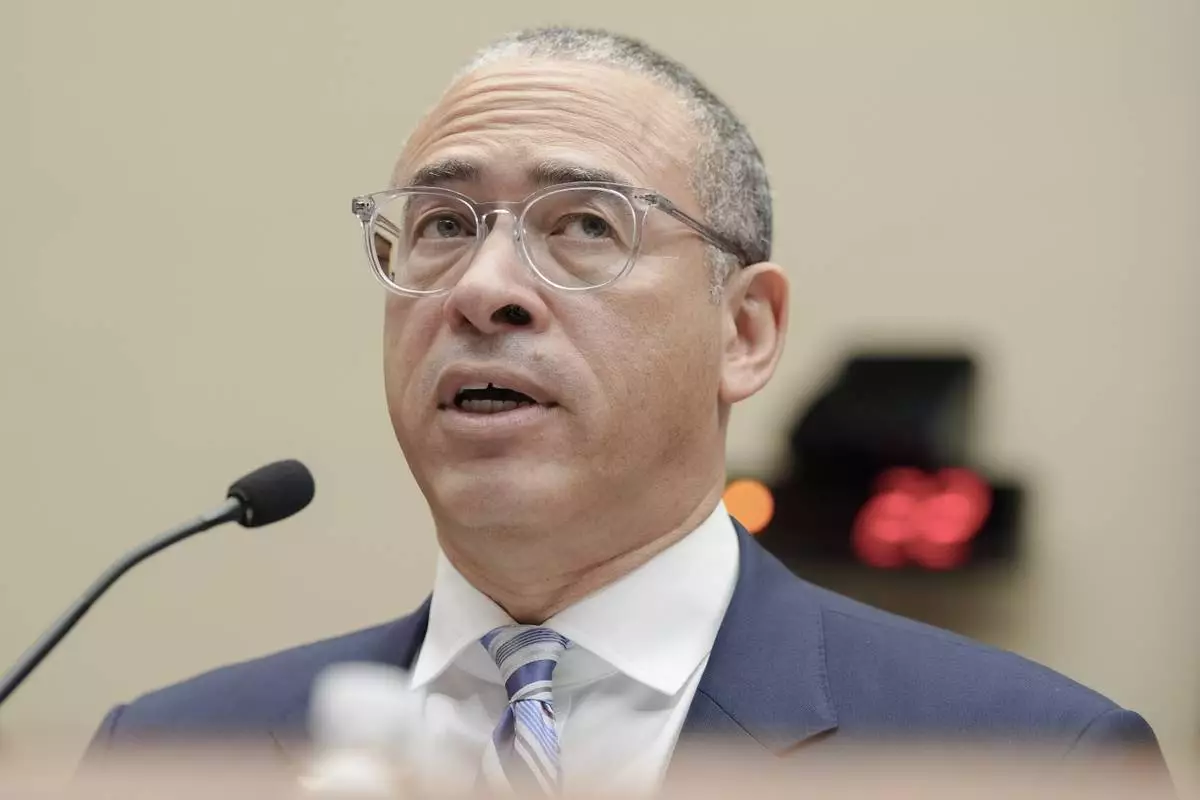
Rutgers University President Jonathan Holloway testifies during a hearing of the House Committee on Education and the Workforce regarding pro-Palestinian protests on college campuses on Capitol Hill, Thursday, May 23, 2024, in Washington. (AP Photo/Mariam Zuhaib)
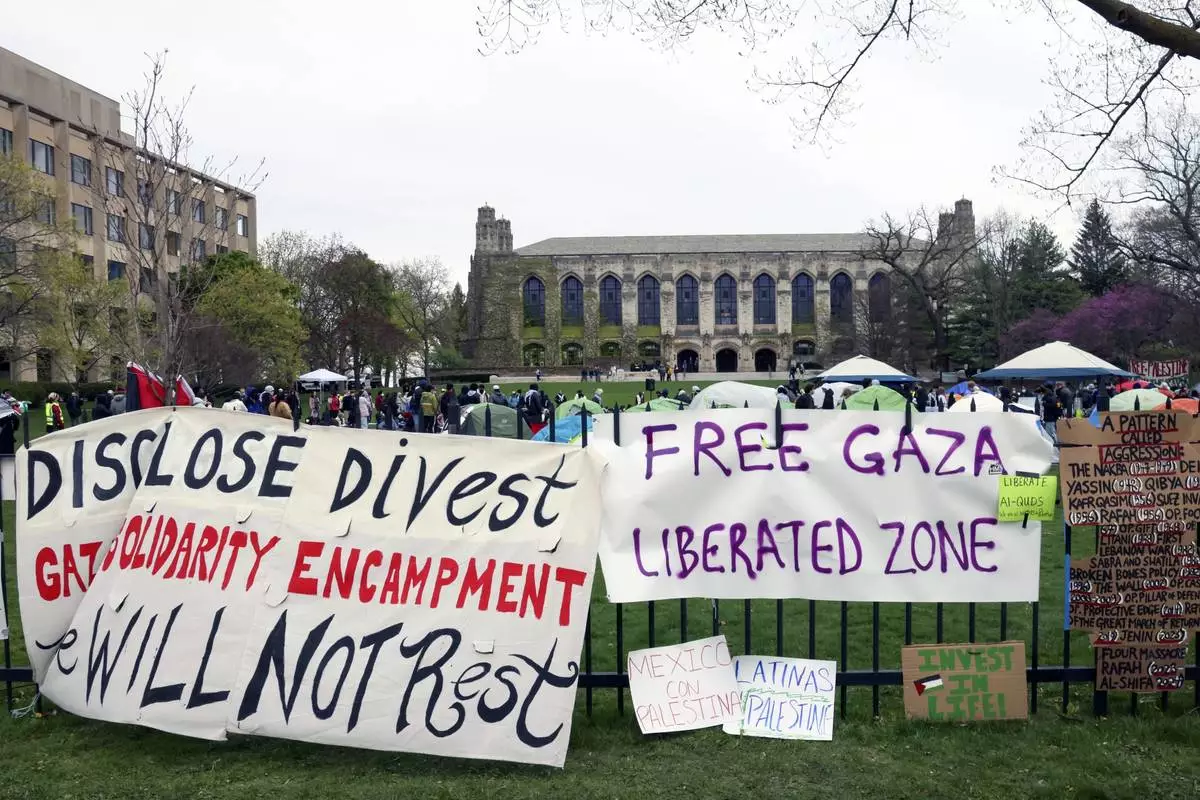
FILE - Signs are displayed outside a tent encampment at Northwestern University on Friday, April 26, 2024, in Evanston, Illinois. Leaders from Northwestern University, the University of California, Los Angeles, and Rutgers University are expected to testify before Congress on Thursday, the latest in a series of hearings spearheaded by House Republicans into how colleges have responded to pro-Palestinian protests on their campuses. (AP Photo/Teresa Crawford, file)
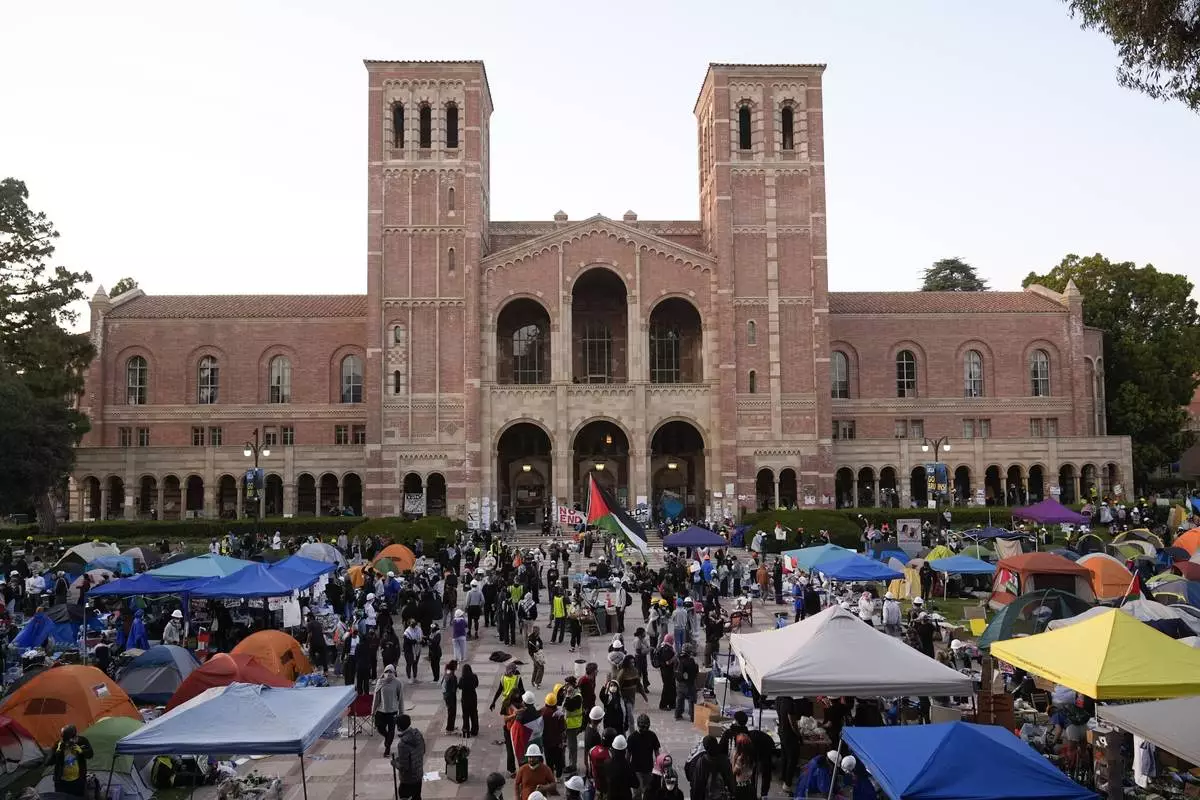
FILE - Demonstrators walk in an encampment on the UCLA campus after clashes between pro-Israel and pro-Palestinian groups, Wednesday, May 1, 2024, in Los Angeles. Leaders from Northwestern University, the University of California, Los Angeles, and Rutgers University are expected to testify before Congress on Thursday, the latest in a series of hearings spearheaded by House Republicans into how colleges have responded to pro-Palestinian protests on their campuses. (AP Photo/Jae C. Hong, file)


